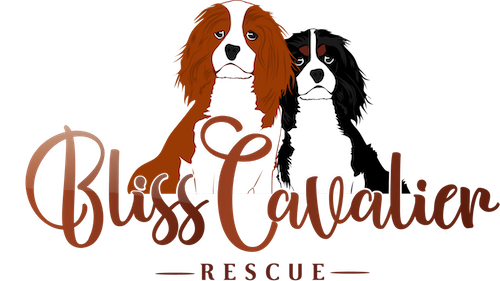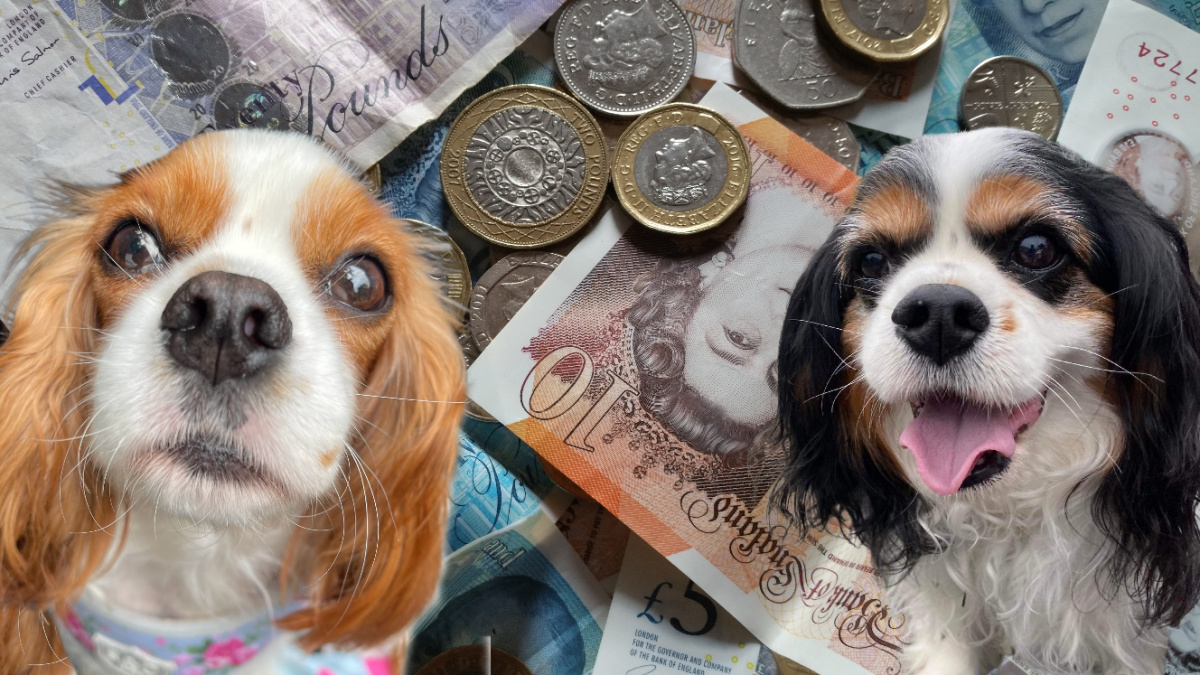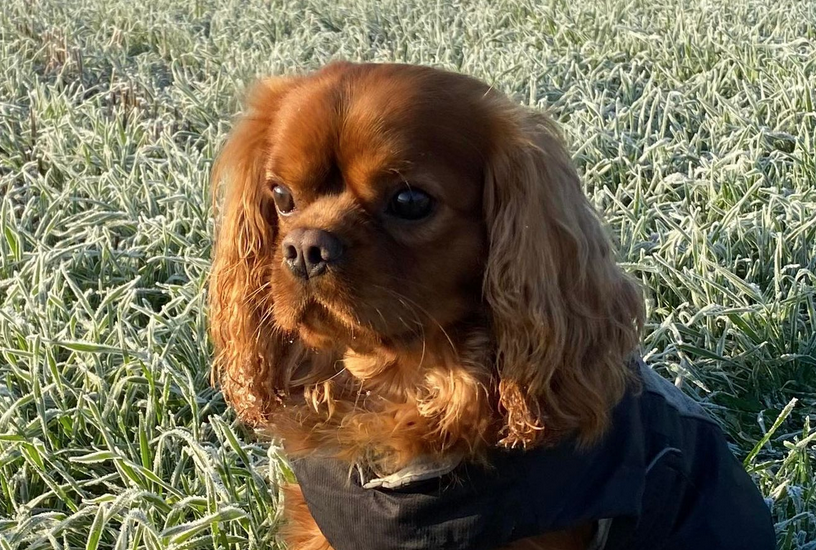Cavalier ownership costs soar- what can you do to keep costs down?

Keep your Cavalier safe on hot days
17 May 2022
Rescue is very hard right now – July 2022 update
8 July 2022So far 2022 has been very concerning in many ways. We have seen energy price hikes, interest rates creeping up affecting homeowners with a variable rate mortgage and fuel costs increasing, meanwhile, salaries remain much the same.
We have seen many Cavalier owners on social media reporting pet insurance premiums rising more than they usually would. Vet practices of course are not immune to the energy and other price increases so have had to adapt, passing these costs onto the clients as there is no other choice.
Owning a Cavalier is commonly extremely expensive due to their health problems, so taking one on if you’re uncertain about your finances is not a good idea.
Our veterinary costs poll
We ran a poll on our Bliss Cavalier Rescue Supporters Group on Facebook and the results were as we thought they would be. We asked the question ‘Are you concerned about veterinary bills for your Cavalier in either the short term or long term future?‘
11% of owners responded ‘Yes, I’m very worried about short-term finances in relation to vet bills.’
70% said ‘I’m ok for now but I am worried about the future.’
In total 143 followers responded.
Cavalier health
There is no doubt about it, Cavaliers commonly have a plethora of health problems, and none of these are inexpensive to treat. Some costs can be lessened by making some changes in your daily care regime for your dog, planning ahead and shopping around for items that you need.
Some owners are wondering wether to continue to insure their dogs or not due to the rising premiums. This is a difficult question and it wholly depends on individual circumstances.
Many things need to be taken into account: Could you immediately afford to pay for a procedure such as a disc herniation for example that costs between £5000-£9000? Could you afford to pay for a long veterinary hospital stay? Could you afford an MRI? Could you afford ongoing monthly medication on the assumption additional medications will be added to your dogs’ treatment plan?
Many of us feel more at ease with a comprehensive insurance policy. Others have a high level of savings or a high-limit credit card to hand. The question to ask yourself is; Is there any chance that anything could change with your finances during the lifetime of your dog? Planning is key.
Purchasing a puppy or adopting
The purchase price of puppies definitely confuses some buyers, it is often thought that the more a puppy costs the ‘better’ it will be. This is wholly untrue, over the last couple of years we have seen many breeders selling puppies for in excess of £2500, yet not a single health test had been carried out on their parents. Buying a Cavalier puppy is a minefield for many reasons but the best advice is to find a Kennel Club registered breeder that is carrying out health tests on the breeding parents. There is a lot of useful information on ‘purchasing a Cavalier puppy‘ on the Cavalier Matters website.
A good breeder will be there for you and your puppy for the rest of their life and can offer support and advice with any concerns you may have. Good breeders that health test will likely have a waiting list. You should expect to pay upwards of £1400 for a Cavalier with health-tested parents but do make sure you see the health test certificates.
Adoption is great for many owners, but not all. More often than not we have Cavaliers with numerous health problems in rescue, this means these conditions are pre-existing so cannot be covered by insurance when they are adopted. We do try our best to make sure all applicants know as much as possible about the costs involved but still, things can change over time, conditions worsen and require further medication.
Insurance
Pet insurance can be a minefield. There are terms that are easily misunderstood and can put owners in hot water at their worst possible time. Insurance is used to cover veterinary bills, or partially cover veterinary bills. Some policies will also pay out if your dog passes away, is lost or stolen, or third party liability ie if your dog caused damage or injured someone. Most now cover dental care but commonly only from an injury, there are policies that do cover all dental care but read the small print very carefully.
Also do bear in mind that the cost to insure rises each year, a one-year-old Cavalier King Charles insurance can be around £30 a month but a 9-year-old Cavaliers insurance can be £80-300+ a month.
- Insurance tends to cover amounts from £1,000-£15,000. Typically the more expensive the policy, the more cover you will get, but not always.
- Pre-existing conditions will not be covered- these include chronic conditions and historic conditions that your pet has suffered from in the past but has recovered from.
- Your Cavalier will not be covered for the first 10-14 days from the insurance policy start date. Good breeders and rescues ensure the pet is covered for the first 4-6 weeks of purchase or adoption.
- Vaccination, neutering, nail clipping, grooming including nail clipping, flea and worm preventatives and teeth maintenance are usually excluded.
- Some do not cover additional therapy such as physiotherapy and hydrotherapy or may put on a limit of sessions.
- Check that the insurer can pay the vet directly and also check that your vet is happy to wait to be paid by the insurer. Claims can be pre-authorised in a non-emergency situation.
Insurance types
Lifetime Cover Pet Insurance – This is the most commonly purchased policy and we feel by far the best for most owners. The policy will cover veterinary treatment for the lifetime of your Cavalier- but- there is a yearly limit that will reset at the beginning of each policy year. The limits vary and are dependent on your annual premium- the higher the cost of premium the higher the level of cover.
Lifetime Policy Per Condition Per Year – This type of policy has a yearly limit for each condition diagnosed.
Non-Lifetime Cover – A much less comprehensive type of policy and less expensive to purchase. However, if your Cavalier develops a condition and the insurance provider pays out, that condition will no longer be covered by insurance at all.
Non-Lifetime Cover – Time limit per condition- This policy is another risky type, if your dog develops a condition it will only be covered for usually 12 months.
Accident Only Cover- This type of policy is inexpensive but will only cover an accident, nothing else. Different levels of cover are available.
Rushing to cancel the insurance policy may seem like an easy way to make savings but could land you in very big trouble longer term. Instead, if your Cavalier does not have any pre-existing health problems you could shop around for quotes and change provider.
Keep your Cavaliers weight down
This isn’t really to save money on dog food and treats, although that is an added bonus, but is more to avoid weight-related health issues. Overweight Cavaliers are more likely to suffer from painful arthritis, diabetes, cruciate ligament issues, spine problems, urine incontinence, cancer, breathing problems and ultimately a reduced life span. An overweight dog is much more likely to develop costly health conditions than a dog of a healthy weight.
If you are struggling with keeping your Cavalier at a healthy weight you are more than welcome to join our ‘Cavalier Fat Club’ group on Facebook. Alternatively have a chat with your vet nurse, they are wonderful at helping with weight loss and some practices run special clinics.
Food
Good quality food is vital. ‘All about dog food‘ is a fantastic website that helps you find the best dog food for your dog and within your budget. There are nutritional ratings, an analysis of the food contents and a price guide too. Dog food is something you can easily shop around for online so you can quickly save some pennies. Generally, if you buy a larger amount it is much discounted compared to buying smaller amounts per gram/kg.
You would think the most expensive dog food is the best but this isn’t always the case. Even changing where you purchase the food could save you some money, prices often fluctuate so each time you purchase check out the price against other stores.
Purchase medication online
You can save a significant amount of money by purchasing your dog’s medication online. To do this your vet must issue a prescription at the medication review, you then can either post or scan the prescription to the online pet pharmacy. A quick search online will bring up a comprehensive list of very trustworthy veterinary pharmacies. Often you can save a huge amount of money doing this. A good example of something many of us have to purchase is Optimmune, when you purchase online you can save up to 58%!
Teeth
Typically due to Cavaliers being brachycephalic, it is not at all unusual for them to need a dental every year or two. Some insurance policies will cover this but they do tend to be the premium policies. Costs for a dental can vastly vary but you can expect the cost to be anywhere between £350-1400. It can be a good idea to shop around for this procedure especially if you have been given an estimate that is way out of your budget.
In between veterinary dentals, there are some things you can do to help your dog’s teeth. Daily brushing is very important and some groomers are now offering ultrasonic teeth cleaning- this is not to replace vet checks but in addition. Chewing is very important also but beware of some of the daily ‘sticks’ as they can encourage weight gain.
Ears
It will probably sound really obvious but if you can keep a close eye on your dog’s ears and clean them once a week it will prevent bigger issues such as infections from yeast. Keeping the hair short on the inside of the ear flap allows air to flow better which again aids ear health. Cavaliers commonly over-produce yeast which if left will result in an infection leading to a vet trip and course of treatment.
Feet
Keep your Cavaliers fur-trimmed or clipped between their pads. Debris can easily build up in-between the pads and can become matted. Too much fur really doesn’t help with yeast also, the feet can quickly become humid and the perfect place for a yeast infection to begin. Another good reason to clip the fur between pads is your dog can slip much more easily as they have no traction if they are walking on fur.
Learn to groom your Cavalier
Groomers typically charge between £30-60 to groom a Cavalier, this needs to be done every 4-6 weeks to keep them clean and comfortable. A really good way to save more pennies is to learn to groom your Cavalier yourself.
There are often day courses that run for pet owners at colleges that teach dog grooming. If you cannot find a local college you can learn the basics via YouTube, there are thousands of dog grooming videos online. Some groomers are also happy to teach owners the basics for a one-off fee. They are not a difficult breed to groom at all, especially if you brush and comb them frequently.
You would need to purchase some grooming tools but the outlay would quickly be recouped.
Are you eligible for free or discounted veterinary care?
The PDSA help up to 2.7 million pets every year. You may qualify for help from the PDSA if you live close to one of their 48 pet clinics and are in receipt of benefits. Check for eligibility at the PDSA.
The Blue Cross offers low-cost veterinary care to pets in their catchment if owners are receiving certain benefits. More information from the Blue Cross.
Charities are in crisis so really need every penny, if you do need to use their services they are extremely grateful for any donation you can make to help pay for your pet’s care.
If you are not eligible for free or discounted care the best thing to do is have an honest conversation with your vet to see if there is anything else that can be done. Sometimes there are local charities set up to help with veterinary care expenses, your vet may know who to contact.
Things that you should not do to save money
Cavaliers still need frequent veterinary check-ups there is no getting around that. In the long run, it is always better to know what you are dealing with rather than leaving things to get worse. Vets need to see dogs frequently that are on medication, that is the law.
Don’t be tempted to treat things like eye problems or ear infections yourself with over-the-counter medications- often this will cost you more as the problem won’t improve and could take much longer to clear up.
Notice: Trying to access array offset on value of type null in /var/www/vhosts/blisscavalierrescue.org/httpdocs/wp-content/themes/betheme/includes/content-single.php on line 286




